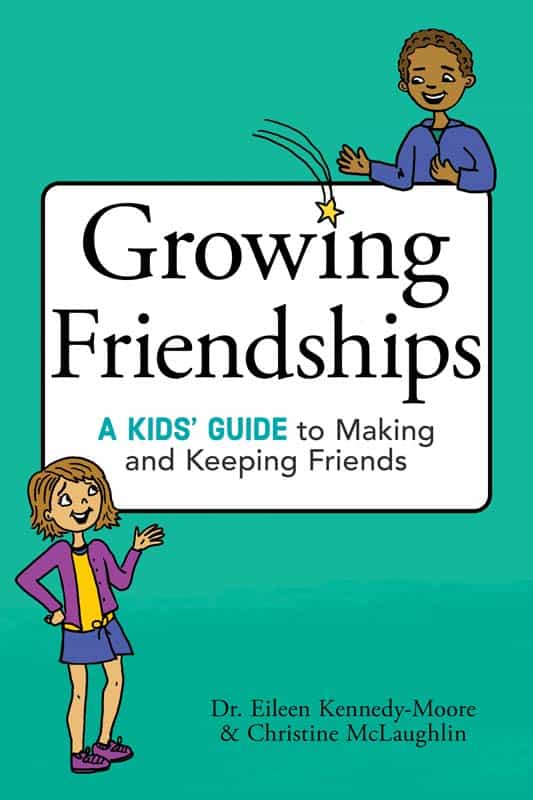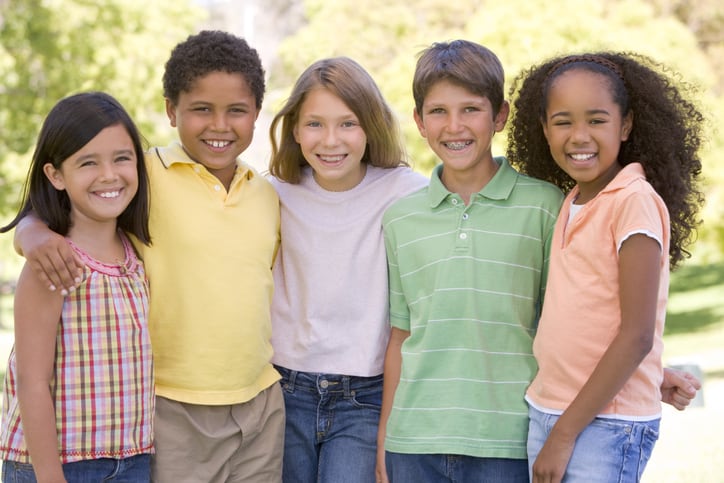Dr. Friendtastic: How to Help Your Kids Make Friends
Psychologist and parenting authority Dr. Eileen Kennedy-Moore, author of “Kid Confidence,” offers advice on how to help your kids make friends in “Growing Friendships” and a new mini-podcast, “Kids Ask Dr. Friendtastic”
Friendships mean so much to our children. What can we, as parents, do to help our kids make and keep friends?
Dr. Eileen Kennedy-Moore: The first thing I would suggest is that parents create opportunities to build friendships. Kids make friends by doing fun things together. Help your child figure out what they enjoy doing that they could do with other kids. This could be an organized activity or one-on-one playdates.
I also recommend social coaching. What fuels the development of children's friendships is a growing ability to understand someone else's perspective. Be careful not to criticize your child in front of other kids, but at other times, talking about what someone else might be thinking or feeling can help your child figure out what to do.
Modeling is important, too. Show through your own example that you value and make time for friends. Also, have fun with your kid. Especially if your child is struggling with peers, it feels good to come home to comfort, acceptance and fun.
What if your child says, “Nobody likes me?”
Dr. Eileen Kennedy-Moore: Offer empathy first. One thing that tends to hold kids back is the “Magnet Myth” of friendship, which is the belief that we have to be so amazing and wonderful that we draw friends to us the way a magnet attracts metal. If you're looking for that ‘Wow, you're amazing!’ reaction, you're not looking for friends—you’re looking for fans. Friendship is a relationship between equals. Look for common ground.
How did kids join a group of friends? I noticed that, in your book, you don't recommend walking up and saying, “Can I play, too?”
Dr. Eileen Kennedy-Moore: Right. Think about what happens if your kid does that: The other kids have to stop what they're doing, turn around and look at your kid, and decide if they want them to play. This is disruptive, and it's just too much of an opening for a mischievous kid to say, ‘No, you can't play!’ Researchers have found that there's a very specific way that kids join a group: Watch, then blend. Watch what the kids are doing, then slide into the action without interrupting.
With older kids, where it's more about joining a conversation rather than play, the same idea applies. They need to match the emotional tone of the group. So, if everyone is excited about the new collectible, they should at least be interested, if they want to join that group.
What about the kid who tends to annoy other kids?
Dr. Eileen Kennedy-Moore: Everyone makes social mistakes, and that's no big deal as long as we stop. But some kids have trouble stopping. If this is your child, you could start by making a list together of “stop signals.” These might be comments like, ‘Quit it! Stop it! You're being annoying!’ Or they could be nonverbal signs like frowning, looking away or making a frustrated sound. If your child hears or sees one of these, they need to stop. If they don't, it's like saying, ‘I don't care about your feelings!’
Sometimes kids don’t even realize they’re being annoying. They’re just trying to be funny.
Dr. Eileen Kennedy-Moore: We all love to be around people who make us laugh, but humor is a risky social strategy because if you're just a little bit off, you're not funny, you're annoying. A safer bet is to try to be kind, rather than funny. It's hard to mess that up.
Any tips about conflicts between friends?
Dr. Eileen Kennedy-Moore: In “Growing Friendships,” we have a list of forgiveness guidelines: If it only happened once, and it's not likely to happen again, let it go. If the friend is genuinely sorry, let it go. If it happened more than a month ago, definitely let it go! Another useful tip is that the person who is LEAST wrong should apologize first. It's easier for that person and a good step toward making up.

For more friendship advice for kids, visit DrFriendtastic.com
Originally published in April 2023 of Tampa Bay Parenting Magazine.


